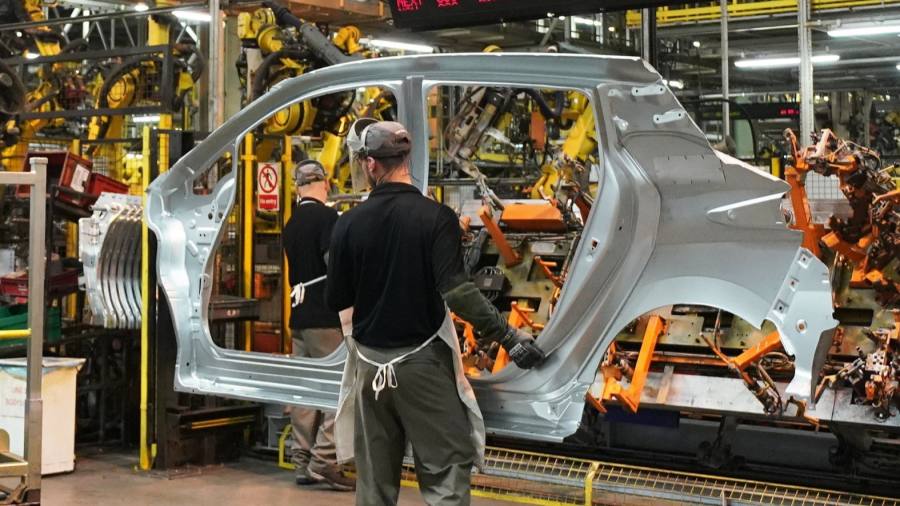[the_ad id="21475"]
[ad_1]
British car manufacturing fell to the lowest level in more than half a century during 2022, after a year tainted by supply chain disruption and a spate of factory closures.
The number of cars produced fell 9.8 per cent to 775,014, the worst year since 1956, according to figures released by the Society of Motor Manufacturers and Traders on Thursday.
While the worldwide industry is still hamstrung by a global semiconductor shortage and sporadic parts supplies from China, several UK plant closures during the past two years depressed the numbers further.
Honda’s Swindon facility, which produced about 100,000 models a year, closed in 2021 while the Stellantis site at Ellesmere Port ceased making the Vauxhall Astra last year, in order to prepare to make a new electric van, which will start this year.
Several plants were hit by supply chain problems during the year, with BMW’s Mini plant affected by supply of wiring harnesses made in Ukraine following Russia’s invasion. Several plants were also hit by parts shortages from China, where factories had to stop suddenly owing to Covid-19 shutdowns.
In addition, sales to Russia — which was in the top 10 export markets during 2021 — ceased earlier in the year following the invasion of Ukraine.
As carmakers have struggled to secure enough chips to make their vehicles, they have prioritised the most profitable models. While this helped some UK factories such as VW’s Bentley and BMW’s Rolls-Royce, it may have hurt Toyota, which makes its larger models overseas.
Production is expected to pick up again this year, as the global chip shortage eases, and as the Ellesmere Port plant comes back online.
But even with car output predicted to increase by 15 per cent, the overall volume will still be 40 per cent lower than before the pandemic, the SMMT said.
“We enter this year with a degree of optimism,” said Mike Hawes, SMMT chief executive. “2020 was bad, 21 was worse and 22 was even worse. The only way is up from here.”
UK van production, predominantly based at the Stellantis-owned Luton plant, was a bright spot last year, with a 40 per cent increase owing to strong global demand.
Electric and hybrid vehicles were another highlight and now account for one-third of overall production. Led by the electric Mini, the Nissan Leaf and the hybrid Toyota Corolla, the numbers of these low-emission models rose by 40 per cent to 234,000.
The SMMT forecasts that UK plants will not reach 1mn vehicles a year until…
Click Here to Read the Full Original Article at UK homepage…
[ad_2]
[the_ad id="21476"]
